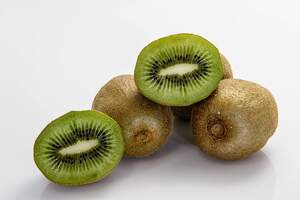

Tu BiShvat
Also known as
New Year for Trees
Rosh HaShanah La'Ilanot
Tu B'Shevat
Tu B'Shevet
Tu Bishvat
Ḥamisha Asar BiShvat
Observed
the 15th of Shevat in the Hebrew calendar
Dates
Hashtags
Sources
Taking place on the fifteenth day of the Jewish month of Shevat, Tu BiShvat is a Jewish holiday that takes its name from Shevat and from two Hebrew letters, tet and vav. Tet is the ninth letter of the alphabet, while vav is the sixth. Adding these two numbers together makes fifteen, the day of the month that Tu BiShvat is observed on. The original name of the holiday was Ḥamisha Asar BiShvat, and the day is also now known as the New Year for Trees.
The holiday celebrates the maturation of trees. According to Jewish law, for the first three years that fruit ripens on trees it is not kosher, and should not be eaten. This fruit is known as orlah. Fruit that is ripe on today's holiday or afterward and is in its fourth year of being ripe may be eaten. This goes back to the time of the Second Temple when fruits ripe in their fourth year were brought to the temple as a tithe. The holiday is also mentioned in the Mishnah as one of the four Jewish new years.
The day is marked by the planting of trees, especially in Israel. The tradition began around the turn of the twentieth century and has been sponsored in part by the Jewish National Fund. A bit later, Jews returning to Palestine in the 1930s reclaimed land by planting trees, and trees were also planted for newborn children, cedars being planted for boys and cypress or pine being planted for girls. The day has also become a day of environmental awareness in Israel, similar to Arbor Day around the world.
Since around 1600 CE, some celebrants of the day have eaten dried fruits and nuts that have been spread out on a platter. This is often accompanied by wine or grape juice. In the Torah, seven "fruits" are praised, including grapes, pomegranates, figs, dates, olives, barley, and wheat. These are the fruits often included in the meal, which is commonly shared with family and friends. Some celebrants eat new fruits as well, and some eat an etrog, a fruit which they had pickled or candied after using it during Sukkot.
How to Observe Tu BiShvat
Tu BiShvat may be celebrated by eating the traditional foods associated with the day, such as grapes, pomegranates, figs, dates, olives, barley, and wheat. Fruits that are eaten should be in their fourth year of being ripe. The other main way to celebrate the day is to plant a tree or to find other ways you can help the environment.





















